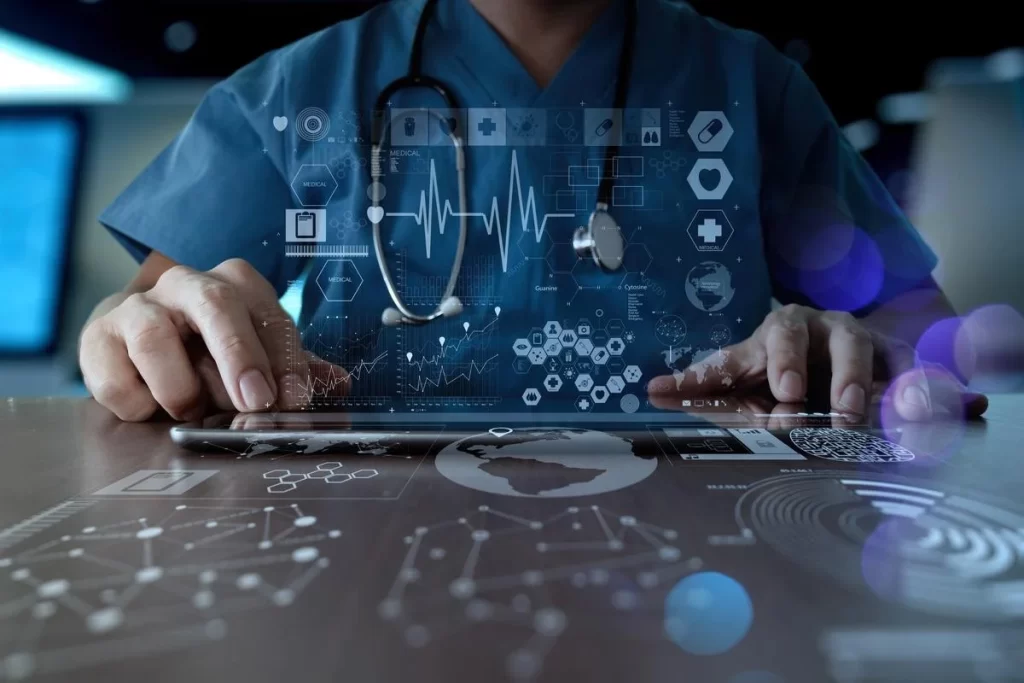In the past several years, the healthcare industry has experienced a new wave of technologies that are changing the face of patient management and clinical results. From telemedicine to AI, the practice has said they are not only making work easier but also improving patient care. As such, in this blog post, we will look at some of the most potential emerging technologies in healthcare and how they are likely to transform the sector in the future.
Telemedicine: Bridging the Gap
Telemedicine has long changed how patients have been attended to by caregivers. Thus, through solutions and different services for virtual consultation, patients can receive medical advice without going through physical examinations. This makes this technology ideal for rural clientele as well as clients with physical disabilities. According to research by the American Telemedicine Association, telehealth services have expanded more than 150 percent since the emergence of COVID-19. This surge shows that virtual healthcare is slowly becoming acceptable and can help offer timely medical care.
Artificial Intelligence: Enhancing Diagnostics
Artificial Intelligence is gradually revolutionizing the health sector by improving the diagnosis of diseases. Computer systems can sift through large amounts of medical data, such as scans, or other patient data that might be hard for clinicians to discern. For instance, in radiology, AI has been applied to diagnose early symptoms of diseases such as cancer and unique ways to raise early diagnostic measurements. With the advancement of AI technology in the coming years, predictive analysis and personalized medicine are likely to be on the upward trend that is likely to make way for customized treatment regimens.

Wearable Health Devices: Real-Time Health Check
Smart wearable devices like smart bands, smartwatches, and other similar devices are on the rise in the market and in healthcare circles. These devices enable people to know their heart rate, sleeping ability, physical activity, and many others on a real-time basis. The wearables generate, and transmit steady data, and through these, the health complications can be identified at an early stage. However, this data can also make healthcare providers come up with customized health regimes for patients hence improving their health status.
Blockchain: Securing Patient Data
Protection of data is of paramount importance in the healthcare sector and with the help of the blockchain. Using blockchain technology, patient’s data can be better protected through decentralization and through making the data only viewable to the right people. It also serves as protection of many records of medical facilities and optimizing the most inadaptable functions, including billing and insurance claims processing. Another application is in the healthcare sector where there is pressure on healthcare organizations to increase data accuracy and increase their compliance and this will see an increase in the use of blockchain technology.
Robotics: First Assistance Surgeons and Care Givers
Robotics are now being integrated into operations and methods of handling patients. Robotic surgery is used to improve accuracy in operations and to shorten the amount of time needed for operations to heal and minimize overall complications. Also, more health facilities and centers are incorporating robotic assistants in the process of helping patients to recover from their injuries. With more developments in the technological area of robotics, chances are that its uses in surgical and non-surgical operations will also increase providing more safer ways of procedures.
The Internet of Medical Things (IoMT): Connected Devices
IoT in the healthcare sector is also commonly referred to as the Internet of Medical Things (IoMT), recognized as a network of interconnected devices, that capture and forward health information. Such devices as smart inhalers or connected blood glucose monitors offer healthcare providers unique insights into patient’s health. Through observation in real-time, IoMT helps the management of chronic diseases and minimizes readmissions to the hospital. With such connectivity being realized, the possibility of IoMT bringing drastic change to patient care is set to increase in the future.

